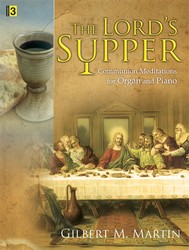O thou, by long experience tried,
Near whom no grief can long abide;
My love! how full of sweet content
I pass my years of banishment!
All scenes alike engaging prove
To souls impressed with sacred love!
Where'er they dwell, they dwell in thee;
In heaven, in earth, or on the sea.
To me remains nor place nor time;
My country is in every clime;
I can be calm and free from care
On any shore, since God is there.
While place we seek, or place we shun,
The soul finds happiness in none;
But, with a God to guide our way,
'Tis equal joy to go or stay.
Could I be cast where thou art not,
That were indeed a dreadful lot;
But regions none remote I call,
Secure of finding God in all.
My country, Lord, art thou alone;
Nor other can I claim or own;
The point where all my wishes meet;
My law, my love, life's only sweet!
I hold by nothing here below;
Appoint my journey and I go;
Though pierced by scorn, oppressed by pride,
I feel thee good—feel nought beside.
No frowns of men can hurtful prove
To souls on fire with heavenly love;
Though men and devils both condemn,
No gloomy days arise from them.
Ah, then! to his embrace repair;
My soul, thou art no stranger there;
There love divine shall be thy guard,
And peace and safety thy reward.
Source: Translations from the French of Madame de la Mothe Guion #13


 My Starred Hymns
My Starred Hymns




